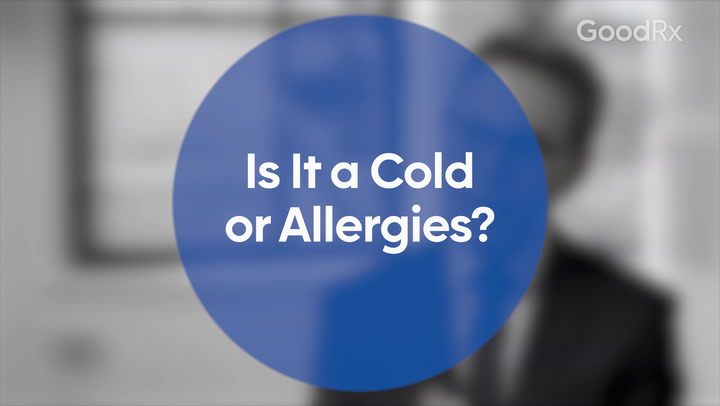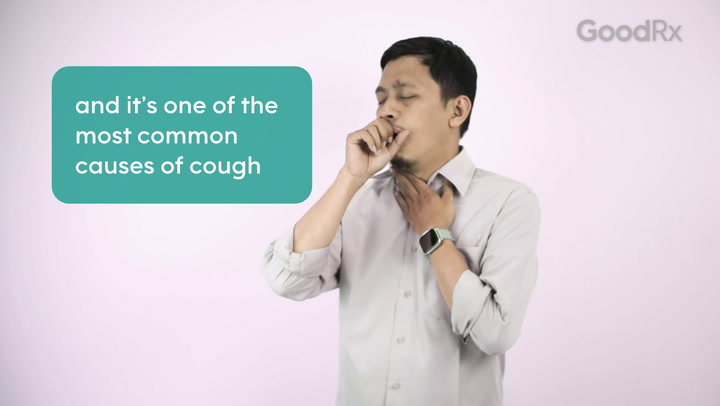
How Long Can You Take Oral Decongestants Like Sudafed?
Key takeaways:
Sudafed (pseudoephedrine) is an oral decongestant that helps treat a stuffy nose. It’s a common ingredient in cold, flu, and allergy medications that are kept behind the pharmacy counter.
Sudafed PE (phenylephrine) is an oral decongestant that’s available over the counter. But it’s not as effective as Sudafed for congestion.
You shouldn’t take an oral decongestant for more than 7 days without a healthcare professional’s OK. Long-term use can cause high blood pressure and lead to a heart attack or stroke.
Access savings on related medications
Table of contents

A stuffy nose is a common symptom of allergies or an upper respiratory infection, such as a cold, the flu, or COVID-19. Nasal decongestants are medications that help relieve a stuffed-up nose. They’re available over the counter (OTC) in nasal sprays, oral liquids, and oral tablets.
Oral nasal decongestants are available alone or in combination with other medications, such as pain relievers and antihistamines. But what do oral decongestants do, and how long can you take them? Here’s what to know about taking nasal congestion pills long term.
What do oral decongestants do to the body?
Oral decongestants work by tightening the blood vessels in and around the nose. This helps relieve swelling in the nasal passages, making it easier to breathe again.
Stay healthy with CVS
Shop the brands you trust at CVS. Whether it’s wellness or beauty, get what you need at great prices.

But oral decongestants also tighten blood vessels in other areas of the body. This can raise your blood pressure. Oral decongestants also stimulate certain receptors (binding sites) in the heart, which can cause your heart rate to go up. Because of this, they aren’t recommended for everyone — more on that later.
Other possible side effects of decongestants include:
Anxiety or agitation
Trouble sleeping
Nausea
Headache
Tremor
It’s a good idea to avoid taking an oral decongestant within 4 hours of your bedtime to avoid sleep issues.
What medications contain oral decongestants?
There are many oral medications that contain decongestants. The two most well-known oral decongestants are Sudafed (pseudoephedrine) and Sudafed PE (phenylephrine). But a recent FDA review found that oral phenylephrine is likely ineffective for nasal congestion. So pseudoephedrine is considered the most effective oral decongestant that’s available without a prescription.
Oral decongestants are also included in many other combination cough, cold, and allergy medications. Examples include:
Advil Allergy Sinus (ibuprofen/ chlorpheniramine / pseudoephedrine)
Advil Cold and Sinus (ibuprofen / pseudoephedrine)
Aleve-D Sinus and Cold (naproxen / pseudoephedrine)
Allegra-D (fexofenadine / pseudoephedrine)
Claritin-D (loratadine / pseudoephedrine)
DayQuil Cold and Flu (acetaminophen / dextromethorphan / phenylephrine)
Mucinex D (guaifenesin / pseudoephedrine)
Robitussin CF Max (acetaminophen / dextromethorphan / guaifenesin / phenylephrine)
Zyrtec-D (cetirizine / pseudoephedrine)
Choosing the best cold and flu medication: Here’s what to know to help you choose the right cold and flu medication for your needs.
Afrin vs. Sudafed: Learn how these two decongestants compare to help you find the right treatment for a stuffy nose.
Is it allergies or a cold? Read up on how to tell the difference between allergies and a cold and how this can change your treatment options.
Keep in mind that products containing pseudoephedrine are kept behind the pharmacy counter. There are also daily and monthly limits on how much you can purchase. This is because pseudoephedrine can be used to make methamphetamine, an illegal substance.
How long does it take for an oral decongestant to work?
Oral decongestants start working quickly. Sudafed kicks in within about 30 minutes of taking it. The extended-release (ER) version, Sudafed Sinus Congestion 24 Hour, may take up to an hour to start working.
How often should you take oral decongestants?
How often you take an oral decongestant depends on what form you’re taking. You should follow the directions on the OTC packaging for the product you’re using.
Adults can take the immediate-release (IR) form of Sudafed every 4 to 6 hours as needed up to a maximum of 240 mg (8 tablets) per day. The maximum daily dose for children varies depending on their age.
Sudafed ER tablets come in 12-hour and 24-hour versions, meaning you’d only take them once or twice a day.
Oral phenylephrine only comes as an IR medication. Adults can take 1 tablet every 4 hours as needed, up to a maximum of 60 mg (6 tablets) per day. The maximum daily dose for children varies based on their age.
When should you stop taking oral decongestants?
You should only take oral decongestants for up to 7 days without a healthcare professional’s approval. After this point, you should speak with your healthcare team. They can help determine what’s causing your symptoms and make treatment recommendations.
But even if it hasn’t been 7 days, you should seek medical care if:
Your symptoms are severe or worsening
You have a fever
You see blood or pus when you blow your nose
You have a positive COVID test
Remember, medications like Sudafed can raise your blood pressure and heart rate after only a few doses. So you should take the lowest effective dose of an oral decongestant for the shortest time necessary unless your prescriber tells you otherwise. Seek emergency care if you have chest pain or trouble breathing at any time while taking Sudafed.
What happens if you take decongestants for too long?
As discussed, oral decongestants affect blood vessels throughout the body, as well as in the heart. Taking oral decongestants can raise your blood pressure and heart rate. Sometimes, this can happen after just a couple of doses.
Over time, high blood pressure can raise your risk for more serious problems, such as a heart attack or stroke. Your risk of heart-related complications is higher if you have existing high blood pressure or heart disease. This is why you should ask your healthcare team whether oral decongestants are safe for you if you have heart problems.
Is it OK to alternate taking different types of decongestants?
Yes, it’s OK to alternate between different oral and nasal spray decongestants. Just don’t use more than one of any type of decongestant at the same time. And the 7-day rule remains, even if you switch to a different decongestant product.
You also shouldn’t use a decongestant nasal spray longer than 3 days in a row. It can cause rebound congestion if you use it longer than that. Rebound congestion is when your body becomes dependent on a decongestant. Oral decongestants aren't linked to this side effect.
What risks come from taking too many oral decongestants?
Taking more than one decongestant at the same time or a higher dose than recommended raises your risk of serious side effects. This includes:
Severe dizziness
Trouble breathing
Hallucinations
Seizures
Heart attack
Stroke
A decongestant overdose can be fatal in severe cases. If you or a loved one takes more decongestants than recommended, contact your prescriber or reach out to Poison Control at 1-800-222-1222. If symptoms seem life-threatening, call 911 or seek emergency care.
Who should not take oral decongestants?
Most people can take oral decongestants, such as Sudafed, for up to 7 days as needed. But there are some people who shouldn’t take decongestants at all. This includes:
People who are allergic to pseudoephedrine or phenylephrine
Infants and children under age 4
People who are currently taking or have taken monoamine oxidase inhibitors, such as selegiline and phenelzine, within the past 2 weeks
There are other health conditions that require a healthcare professional’s approval before taking an oral decongestant. Ask your healthcare team about these medications first if you’re:
Pregnant or nursing
Living with diabetes
Have a history of high blood pressure or other heart problems
Have glaucoma
Experience trouble urinating due to an enlarged prostate
Have a history of thyroid problems
Keep in mind that there are other options available to help with nasal congestion. Try taking a steamy shower or using a nasal saline rinse.
The bottom line
Oral decongestants such as Sudafed (pseudoephedrine) can help relieve a stuffy nose. They work quickly to help you breathe easier again, but you shouldn’t take nasal congestion pills for more than 7 days without a healthcare professional’s OK. Long-term use raises the risk of side effects, such as increased blood pressure and heart rate. Speak to your healthcare team for guidance if your symptoms worsen or don’t improve within a week.
Why trust our experts?



References
Dean, J. S., et al. (2023). Alpha 1 receptor agonists. StatPearls.
Familydoctor.org. (2023). Decongestants: OTC relief for congestion.
Fried, M. P. (2023). Nasal congestion and discharge. Merck Manual Consumer Version.
Głowacka, K., et al. (2021). Pseudoephedrine—benefits and risks. International Journal of Molecular Sciences.
Johnson & Johnson Consumer. (2023). Sudafed sinus congestion 24 hour- pseudoephedrine hydrochloride tablet, film coated, extended release [package insert]. DailyMed.
MedlinePlus. (2018). Pseudoephedrine.
Salerno, S. M., et al. (2005). Effects of oral pseudoephedrine on blood pressure and heart rate: A meta-analysis. Database of Abstracts of Reviews of Effects (DARE): Quality-Assessed Reviews.
ScienceDirect. (n.d.). Decongestant.
U.S. Food and Drug Administration. (2023). FDA clarifies results of recent advisory committee meeting on oral phenylephrine.

























